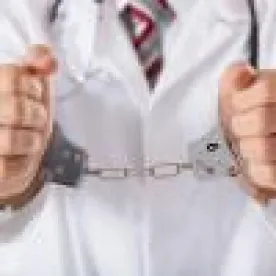In the past month, state and federal prosecutors have separately charged the former CEO of Skyline Healthcare, Joseph Schwartz, with Medicaid and tax fraud. The criminal actions, which represent the latest legal action against the troubled operator and its founder, are expected to be followed by civil enforcement actions brought by a group of attorneys general in some of the 11 states where Skyline operated. Together, these charges serve to demonstrate the aggressive enforcement actions being pursued by multiple different governmental authorities in this highly regulated and increasingly scrutinized industry.
Skyline, which owned and operated skilled nursing facilities, was at one point one of largest elder care companies in the country. Despite its size, Skyline was a family business with a small corporate structure. Schwartz served as CEO and co-owned most of the properties with his wife, Rosie. His sons served as vice presidents.
Before purchasing several nursing homes about a decade ago, Schwartz had no previous experience in the healthcare industry. Skyline, however, expanded quickly: Schwartz purchased 17 facilities in November 2015 and added another 64 within a year. At its peak, Skyline operated over 100 facilities throughout the country.
Skyline ran into problems almost immediately. Within months of Skyline’s entry into the Arkansas market, the fined Skyline over $200,000 after an investigation uncovered problems, such as a failure to bathe residents and allowing maggots to fester in a resident’s personal medical equipment.
This action was followed by investigations from the U.S. Department of Justice and half a dozen other states that resulted in civil fines and several Skyline facilities being placed into forced receiverships. By 2019, Skyline collapsed nationally.
After Skyline’s collapse, the COVID-19 pandemic again thrust the Schwartz family’s facilities into the national spotlight amid allegations of nursing home neglect. In April 2020, 17 bodies were discovered piled within a small morgue in a former Skyline facility in New Jersey that was still co-owned by Schwartz’s son. During the first four months of the COVID-19 pandemic, 83 residents at that facility — nearly a sixth of the total resident population — passed away from the coronavirus.
The Arkansas and DOJ prosecutions represent the first criminal charges against Skyline. The primary allegations are relatively straight-forward claims of Medicaid fraud and tax fraud. In the Arkansas prosecution, the state alleges that Schwartz overstated to Medicaid the cost of care provided directly to residents by more than $6 million. Further, both Arkansas and DOJ claim that as Skyline began to fail, Schwartz continued to take withholding for taxes from employees’ paychecks but did not pay any of that money over to state and federal authorities.
The ultimate collapse of Skyline led to the introduction and passage of new legislation and regulations in at least three states (Ohio, Kansas and Arkansas) to require increased vetting of new nursing homeowners before they obtain licenses. The allegations against Skyline and Schwartz are particularly egregious. They serve as an important reminder for anyone in the healthcare industry, especially novice providers, that there are a number of different government entities active in this space that have a wide variety of enforcement tools at their disposal.



 />i
/>i
